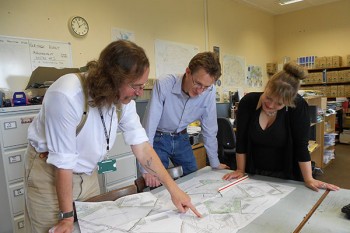MCIfA applicants must provide a statement outlining their employed or voluntary roles and say how their current role demonstrates the four areas of the competence matrix, see below. It is the most important part of your application as it informs the Validation committee about how your skills and experience demonstrate the criteria and helps them reach a decision.
You can use the Statement of competence template to upload or write directly into the boxes in the online form. Please note that draft new applications online cannot be saved and returned to.
Please note if applications are incomplete or haven't been completed in accordance with the guidance they are likely to be rolled over to the next deadline date and interview window.
For further information on how the competence categories apply in specailist areas of practice, please see our supporting specialist competence matrices. These can be used alongside the main competence matrix to see how your work fits into the criteria and help write your statement of competence.
Employed or voluntary roles
Please give detailed information about your role and responsibilities for your current and most recent roles over the last two years. Use each heading of the competence matrix (below) as a guide. You should cover how you demonstrate the four areas - knowledge, autonomy, coping with complexity and perception of professional context - giving specific examples. You may find it easier to give an example of a few projects you have done from beginning to end.
Detailed guidance and examples of what you should include can be found in the performance criteria (MCIfA) (weblink)
For any roles you’ve undertaken longer than two years ago, please give a brief description of the responsibilities held, including any career breaks where relevant.
We also suggest you highlight within the statement the examples of work (see section below) you are providing to support your application.
If you have taken a career break, work part-time or have a portfolio career and can meet the evidence requirements to demonstrate competence in the four areas of the matrix, you are eligble to apply.
You can approach your statement of competence in different ways
- use the four areas of the competence matrix as headings, write something for each and describe a specific example of where you did this
- write it like a job application, describing your main responsibilities and how these fit into the four areas of the competence matrix using specific examples
- write about a few specific pieces of work or projects in detail
Competence matrix for Member (MCIfA)
|
Knowledge
|
Autonomy
|
Coping with complexity
|
Perception of professional context
|
|
Substantial working and background knowledge relevant to area(s) of historic environment practice. Demonstrates a depth of understanding of sector and competence within a broad range of historic environment practices. Understands, contextualises and applies professional standards to own work and, where appropriate, that of others
|
Substantial autonomy, takes full responsibility for own work. Where applicable, will also have significant personal accountability for others and/or the allocation of resources, in a wide variety of contexts
|
Deals with complex situations holistically, demonstrates confident decision-making in a broad range of complex, technical or professional activities
|
High level of understanding of overall ‘picture’, sees alternative approaches and how they might be tackled
Demonstrates professional judgement and ethical behaviour across a wide variety of complex situations, supporting and encouraging others to do the same. Can anticipate, recognise, and resolve potential conflicts of interest. Promotes the values of the Institute to work in the public interest with colleagues, clients, and stakeholders
|
Qualifications (where relevant)
Please list any relevant qualifications, including title, University and date of completion and a brief outline of the areas covered. If you work in academia, please provide a more detailed outline.
If you do not hold any qualifications, you are still eligible to apply.
Additional relevant information
Please include any additional information that may be useful for the Validation committee to take into consideration when assessing your application. A job description or CV can be uploaded to the online form but you must include a statement of competence (above).
If your experience has been gained outside the UK please include some background information about how the profession operates in that country and how your role fits within the profession.
List of projects/publications/grey literature
Please list any relevant projects, publications or grey literature from your work in the last 2 years in the statement template or online form. Where work is co-authored or the authors not defined, please indicate which part(s) you were responsible for. You can also highlight those you are including as your examples of work.
If you do not have any publications, you are still eligible to apply.



